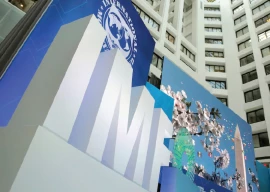
However, when we analyse this argument against the events happening at the global level, a different picture emerges.
Let’s start with the GSP Plus status. Pakistan was actively pursuing GSP Plus status with the European Union to boost its trade and economy. Pakistan was lobbying to get hold of relevant countries and stakeholders to get consensus on the GSP Plus status.
Pakistan needs this badly, especially in the current difficult circumstances. It is facing a lot of problem ranging from economic to security issues. Despite knowing all this, India had been lobbying against Pakistan. India’s envoy to the EU actively persuaded the European parliamentarians to block the process. There are different narratives to this; the most convincing one was that since India does not enjoy a GSP Plus status, it opposed it for Pakistan. However, this does not justify the act, especially when India itself is trying to build trade relations with Pakistan.
Moreover, India has not been given the status due to the volume of its exports to the EU, not because of Pakistan. India is already a big trading partner of the EU and can further expand on that. There is no need to lobby against Pakistan or even to debate against it.
The second uncalled-for episode was throwing a spanner in Pakistan-Russian relations. During former president Asif Ali Zardari’s regime, Pakistan started to build relations with Russia. Meetings of the Inter-Governmental Commission on trade, economic and scientific cooperation suggest that both countries were interested in developing good relations. Moreover, the Russian foreign minister visited Pakistan and talked about possibilities of further strengthening relations. The Russian government also extended help to Pakistan for the expansion and modernisation of the only steel mill in Pakistan that had earlier been built with Russian assistance.
However, Russian President Vladimir Putin postponed his visit without mentioning the new dates of visit. The mainstream press claims India played a behind-the-scenes role for the postponement of President Putin’s visit.
Third, the evidence comes from the Iran-Pakistan gas pipeline project. Initially, India was part of that initiative, but later walked away. This initiative could boost regional integration and economic wellbeing of the people in the region and could also pave the way for transit trade with Afghanistan via Pakistan. It is a missed opportunity for regional integration and for building trust.
Fourth, evidence comes from the politics surrounding the Indian Premier League (IPL). While there is no conflict of interest one fails to understand why Pakistani cricketers are not allowed to play in IPL. This can provide a good avenue for establishing people-to-people contact.
The other dimension of this decision is that it also weakens the argument that the people from both the sides want cordial relations. It hampers the relations at two stages; first it hinders the confidence building measures and also slows down normalisation of the trade process. These incidents also give the impression that India is only interested in bilateral trade, which is beneficial for India and that beyond bilateral trade, it does not have any interest in normalising relations. There is a strong need to mitigate this impression or it will negatively impact relations between Pakistan and India. It will make it difficult for the government of Pakistan to grant India the status of Most-Favoured Nation (MFN).
Published in The Express Tribune, April 15th, 2014.
Like Opinion & Editorial on Facebook, follow @ETOpEd on Twitter to receive all updates on all our daily pieces.
COMMENTS (32)
Comments are moderated and generally will be posted if they are on-topic and not abusive.
For more information, please see our Comments FAQ

1732071267-0/lana-(2)1732071267-0-165x106.webp)
1727242355-0/Diddy-(1)1727242355-0-165x106.webp)

1732063440-0/elon-(3)1732063440-0-165x106.webp)












@Aslam: Even after 100000000000000 years kashmir will be the integral part of india..
**Dear Shakeel Ahmad Ramay,
The arguments which you have mentioned are all very strong but most significant factor between Pakistan and India is Kashmir?The Kashmir is the core issue, If the Kashmir issue is not solved ,How bilateral relations can be built?**
Indians can be vindictive at times.
Sorry guys :/
@Baffled: Were you able to find a single non factual rebuttal? All responses are so very valid, to the point and based on fact unlike this article which is based on same old rhetoric. Seems like ordinary people in India have better understanding and analytic sense then the writer of this article.
How can an reciprocal arrangement like granting MFN status be delayed for decades not years. For a months delay some excuse is possible, for a years delay you need a lot of spin, delay for over ten years only sends a single message -- we will eat our cake and have it too. All of India know that Parliament and PM are not the Institution or office holding real Power, which is exercised from elsewhere. There is little left to wonder why India is not coming to the negotiating table for composite talks, knowing well enough that PM Sharif can promise everything, deliver nothing.
Getting pretty sick and tired of all this "it's everybody's fault except our own" narrative. We need to grow out of this, it's about time. And the title of this article is misleading.
And none of the respondents above mentioned Kashmir and pakistani establishment's continued support for militants there. Trade with India will mean pakistan will have to revisit all these pet projects - Hafiz saeed and his difa e pakistan understands this and therefore their very logical opposition to the MFN status. I would advise the author to listen to Hafiz saeed - it would be less painful for Pakistan.
Depends on who this "our" is? For nawaz government rulers, traders, wholesalers, retailers, importers it sure is in "our" interest but for the indigenous industry, production, agriculture where the majority of Pakistani employed population is employed it's not in "our" interest
Timeline :
November 2008 - Mumbai Attacks.
January 2009 - India refuse to tour Pakistan citing security.
April 2009 - Pakistan refuses to send its players to India saying they are not safe in India.
The saga starts..
Till date the situation has remained the same. Nothing has changed. How come suddenly the Pakistanis have deemed India safe for Pakistani Cricketers?
Or, were they lying earlier?
Correction! There are several steel mills in the private sector eg. Tuwairqi steel.
Excerpts from 2010:
Lalit Modi, the IPL commissioner, said the apprehension over the availability of Pakistan players was the main reason for them being unsold. "Franchises are no more ready to spend $7-8 million on someone who won't be available for the tournament," he said. "It not only exhausted their purse but also wasted slots. They want only those players who would be available for the tournament. They are spending money and they want to get the results."
Shilpa Shetty, the co-owner of Rajasthan, echoed Modi's words. "We were not convinced about their availability and that's why we did not want to take any risk," she said. "If someone is not going to be available, why bid for him." She also said that though they had watched Tanvir over the past year, they were looking for a batsman.
European union or russia do not take dictation from india to make or break friends.If giving pakistan a favourable status is gonna benefit EU then no matter how much india oppose it, EU will grant it and so is russia.The author writes this article with same mentallity that existed in pakistan since its birth.INDIA is evil every where and pakistan a poor victim.No body in the world accept this argument other than pakistanis.Pakistan is gonna benefit more because of bigger market its gonna get.India's economy is doing well.it is pakistan that is sinking into WELL.
Why do you need to play in the IPL to be "accepted" by India? What does India have to do with improving the internal security situation and becoming a haven for trade and growth? Why can't you become partners with Iran on gas on your own? Why blame India?
Wow ! India can only dream of having the kind of clout the writer implies. Putin, EU all towing the lines on India's demand? Give us all a break, please. If Putin didn't visit Pakistan or if EU is not willing to give Pakistan GSP Plus status, it just means that these countries decided that it is not in their national interest either short term or long term. Most probably India's likes and dislikes had absolutely no impact on these decisions. There has to be a way out of this 'Paranoia' rut Pakistan finds itself in for some 60+ years.
After reading all the op-ed for number of years I have come to conclusion that Pakistani schools do not teach critical thinking and self analysis. This authors is doing exactly same it is everybody else’s fault but Pakistan. This approach will not get anywhere. A correct diagnosis is required to get right treatment. Example” Especially, the other side of border shows much more enthusiasm on the subject and shows its intent to help Pakistan boost its trade and economy. ” The reality is trade with Pakistan will not make any difference in India’s GDP number. Pakistan has been factored out. Most of the regional trade partners are doing business except with Pakistan. Liberal Visa, inclusion of Pakistani player in IPL, visit of Indian Politicians to Pakistan is all on hold for 26/11 trial. The bitter truth is that support for non state actors and trade with India are mutually exclusive. Author conveniently forgot that pipe line between Iran and Pakistan is torpedo by KSA and not by India. Moreover, Pakistan does not have money to build pipeline within its own border and expects Iran or some other country to finance it. Free 1.5 billion and free oil from KSA is more attractive than self reliance, history repeats itself.
A few points:
1) Author needs to understand the difference between "International" and "Bilateral." International markets are free and highly competitive. To export to EU (example garments and leather) , India faces competition from Bangladesh, Sri Lanka, Thailand, Phillippines, Egypt, etc... besides Pakistan. It is a free-for all. Why should India not protect it's interests in the International markets? Why should it not debate/lobby against a selected individual country. It owes nothing to any of the competitors. Welcome to free market, Sir.
2) Now for Bilaterat trade India and Pakistan are free to agee to do anything. They can even set up a free trade area - nothing prevents any two countries. India already has free-trade agreements with several countries
3) Donot mix up MFN status to India. It is not a gift! Every day, it delays giving this status to India, Pakistan is in violation if Trade Laws as India has long back given Pakistan such a status. Be thankful, India has not complained to Internal Courts / Forums!
wow.... you finally seem to be getting it. Indians don't want any relations with Pakistan. We are at best indifferent towards Pakistan and get all riled up (with no apparent solution) when terror attacks happen! A recent PEW survey on perceptions showed that 80% of Indians have a negative view of Pakistan!
Firstly bear in mind that at this moment in time, while India is enthusiastic about trade with Pakistan, it does not need it. India has been able to do well despite Pakistan and nowhere does Pakistan fit into its economic agenda.
Now let's delve into the points you raised. Most of the explanations provided are childish and are not grounded in facts or reality.
GSP+: India has every right to campaign against Pakistan in the EU as this was a special benefit provided by the EU to Pakistan in the aftermath of the earthquake which would have affected India's own exports to the EU. However India withdrew its objections when Pakistan promised MFN in return and this promise was subsequently reneged by Pakistan. This is despite India providing MFN to Pakistan some 18 odd years ago.
Putin's visit: You should ask Putin about this. But make no mistake that India has deep-rooted ties with Russia and Russia has massive investments in India.
IPI: India walking away from IPI had everything to do with Iran and Pakistan locking down on a rate at the first entry point into India. As it is, Iran's rate was high and Pakistan's transit fees were unknown, hence it made little sense for India to invest. On the other hand, India has shown interest in an undersea pipeline with Qatar with which it has a long-term contract.
IPL: It was only to be expected that an IPL with Pakistani cricketers in the aftermath of the Mumbai attacks in 2009 would meet with anger and resentment from the public. However it was PCB which decided to not allow any Pakistani cricketers to play in IPL and revoked all their NOCs. Franchise owners had to scramble at the last minute to buy other overseas players. As a result, it is the franchise owners and not BCCI which is not interested in taking any cricketers from Pakistan.
The OpEd title does not match the content.
Some of the points mentioned herein are not factual at all.
There is no evidence whatsoever that it is India that had anything to do with Putin cancelling his visit to Pakistan.India did nothing to stop GSP plus for Pakistan. If you can find evidence of the same, I would appreciate it. IT is earlier on when europe promised tax waivers due to the floods in Pakistan - not just India but Bangladesh and Vietnam also objected since such concessions were not in line with WTO norms. Eventually Pakistan offered to give India the MFN status if India withdrew its objections. India did so but Pakistan failed to keep its word.
India withdrew from IP pipeline because the project did not make commercial sense due to the following reasons:
a. The rate charged for gas by Iran was too high b. The rate charged by PAkistan for transporting gas was too high. c. Pakistan refused to any penalties in case the pipeline which India would invest billions to construct was destroyed through terrorism in Pakistan. In any case if IP pipeline was so good, why did Pakistan not honor its agreement with Iran and consolidate neighborly relations with at least one country?
Having explained why all your grievances against India are not based on facts - let me assure you that dangling of MFN status in front of India to gain unending unilateral concessions from India - while refusing to honor your commitments - is a strategy which is past the sell-by date.
@Author - if you are trying to persuade your countrymen to trade with India, how about NOT listing a list of 'Negative' perceptions about India then?
"... it will negatively impact relations between Pakistan and India. " I don't think there is any scope of negatives left to impact any non-existent relations. "It will make it difficult for the government of Pakistan to grant India the status of Most-Favoured Nation (MFN). Please give us a break. Save your MFN status for someone else. We are overcome with boredom whenever Pakistan and MFN are stated together.
Paks are really funny people with tremendous sense of entitlement. Paks think the entire world owes to the Paks big time. Every day you Paks say India is full of poor people. Yet when we want to protect our textile industry, Paks whine and ascribe evil intentions to India. No one owes you anything. Don't be silly and delude yourself thinking India is desperate to get more trade w Paks. You are a small fry and getting smaller by the minute.